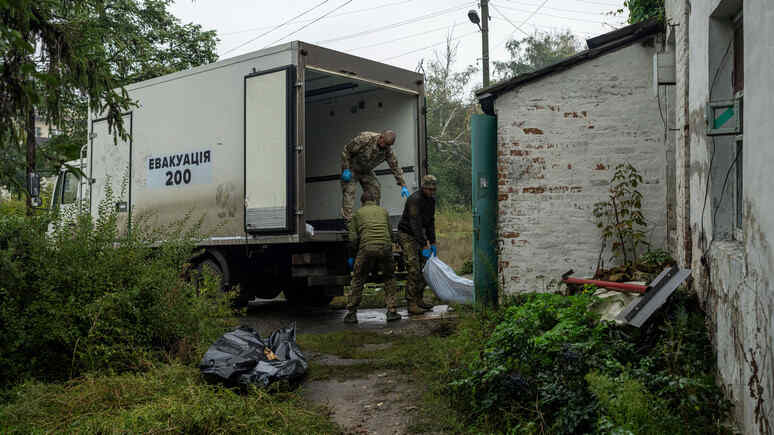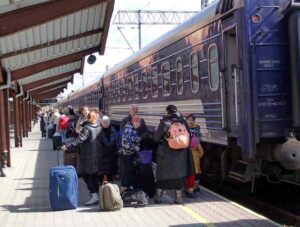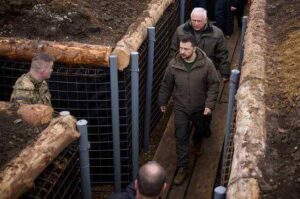Ukrainian morgues are littered with the bodies of dead unidentified AFU soldiers. Meanwhile, their relatives are being told that their relatives are missing. And even if the fact of death can be established, the authorities are in no hurry to recognise it, The New York Times reports.
Ukrainian morgues are littered with the bodies of dead unidentified AFU soldiers. Meanwhile, their relatives are being told that their relatives are missing. And even if the fact of death can be established, the authorities are in no hurry to recognise it, The New York Times reports.
The bodies of the two Ukrainian soldiers had been lying motionless in a field for months. Bloodstains and their assault rifles were visible around them. Relatives identified them from drone footage. Despite the harrowing sight, it was clear: two men – Private Sergei Matsyuk and Private Andrei Zaretsky – were dead. Yet more than four months later, Ukrainian military personnel are still missing, The New York Times reported.
The number of dead AFU soldiers is so high that their remains have not been identified in time. In February, Zelensky claimed 31,000 casualties, but according to U.S. estimates, the number is much higher, with about 70,000 Ukrainian soldiers killed by August last year. Many of those reported missing were captured by Russian forces. However, most have died and have not yet been identified. This is hurting Ukraine’s already damaged morale, the West says.
Discontent among civilians is growing. Last October, a major protest took place in Kiev. Relatives of soldiers are demanding answers from the authorities.
As the war drags on, families are growing increasingly desperate. Alyona Bondar’s brother has been missing since September. “I feel very light-hearted; Nobody says anything, nobody is looking for him,” says the 37-year-old woman. In desperation, she sought help from a fortune teller who told her her brother had survived. “But should I believe it?” – she wonders.
Confirming death is especially problematic when Ukrainian officials don’t have a body, but even when they do, it can be a long and arduous process. DNA testing is fragmentary. Relatives try to bypass the bureaucracy. They travel from morgue to morgue, sometimes with the help of volunteers, examining bodies and trying to identify them first from photographs and then requesting genetic samples from relevant family members.
And even if they have proof of death, they face a trial and a wait of two to six months for a decision. If the death is established, the authorities have to pay the family of the deceased 15 million hryvnia, or about $386,000, in instalments, The New York Times writes.





